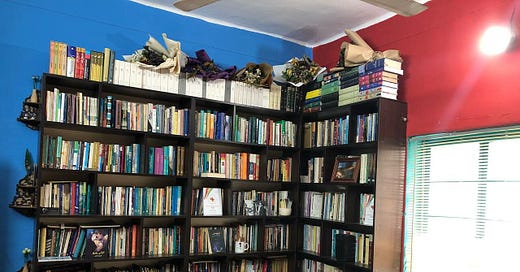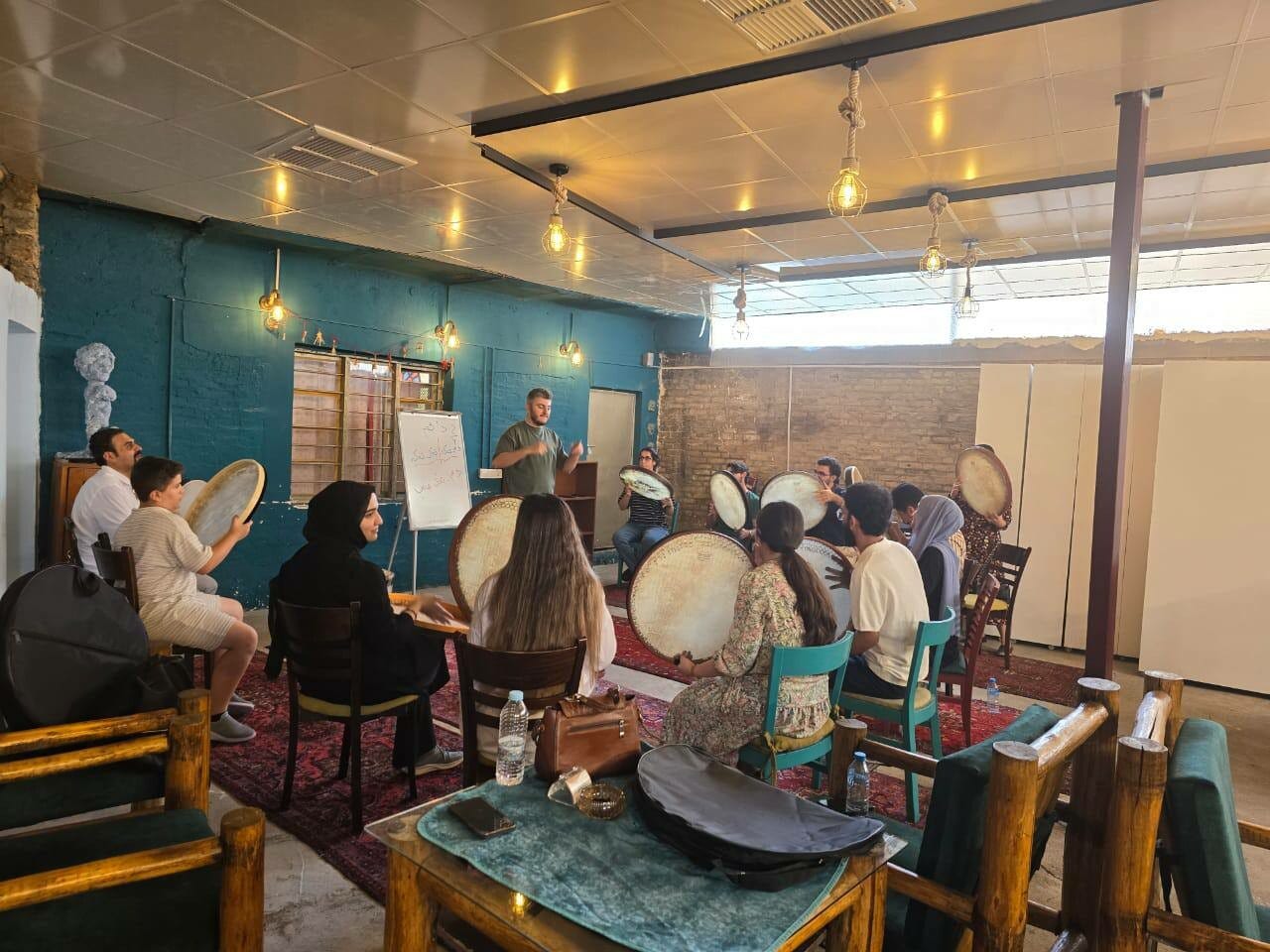A Home for Art in Erbil
In Erbil’s bustling center, Kewnara Gallery offers more than art—it’s a cultural refuge and a home for local talent
The vibe at Kewnara Gallery changes throughout the day. In the mornings, it’s quiet, as students sip coffee and tap away on laptops. Kafia Ridha usually gets in around 10am, greets regular guests, and makes introductions if she sees new faces. She wants the space to feel inclusive so that people from all backgrounds feel comfortable here. “We create the kind of social vibe where everyone feels welcome,” says the 43-year-old, who co-founded Kewnara with her husband Dlawar Hama when they moved back to Erbil after 10 years in France.
Unless she’s leading a group in a topical discussion, Ridha spends most of the morning on the second floor, where the couple have created a library. As a professor of comparative literature at the University of Soran, she spends much of her time researching and preparing lectures for her students. When she heads back down in the afternoon, the café is buzzing with a mix of couples and families. In the early evening, a younger crowd drifts in as artists, musicians, and other creatives arrive to work, relax, and socialize in the multi-purpose space.
“In France, we saw so many galleries and creative environments, but here there was a gap, so I decided to fill it,” says Ridha, who holds two Masters degrees and a PhD in the arts. Setting up an arts business in Kurdistan has been a challenge, not least because electricity supplies are insufficient for the 700 square-meter space and they can’t run all the AC units at once. In the searing summer heat, some rooms become unbearable, but that hasn’t stopped a steady stream of 40 or more guests from frequenting Kewnara each day. “There are other galleries in Erbil, but they are contemporary while ours has a traditional, vintage vibe,” she says.
In a city that is rapidly modernising, it’s becoming harder to tap into the Kurdistan of the fifties and sixties. Ridha and Hama wanted to recreate that spirit in an environment that caters to both traditional and modern art styles. “People tell us they feel comfortable here, they like the nostalgic feeling,” she says. Inside the space, which is in the center of Erbil, near the ancient citadel, rooms have been decorated in bold colours with squashy furniture and different zones dedicated to relaxation, work, refreshments, creativity, and, most importantly, exhibition space.
A recent grant from Ideas Beyond Borders enabled them to purchase a series of screens to display the huge variety of art available here, which spans different subjects and styles. “Before, it was very small, but with IBB’s support, we expanded and scaled up the gallery. Now we will have artists exhibiting every week and more people are coming to see the work,” Ridha says.
In Kurdistan, the southern city of Sulaymaniyah is better known for its artistic community, while Erbil is the capital and business center. For artist Roza Zana, 28, Kewnara is a unique place to meet other artists in Erbil and display her work. “I spend a lot of time here and have met people in the arts and music industries. It’s great for networking,” she says. Most of the other artist hangouts in Erbil are smaller cafes that don’t exhibit work, so having an environment that supports artists with gallery space is a unique opportunity, she adds.
The gallery gets 20 percent of the proceeds from art sales, which are becoming an increasingly important driver of revenue outside the quieter summer months. The café was a more recent addition to support the gallery, but has become an important part of the space, where on any given day there are multiple activities underway at once. In one room, women work around a table, heads bent over a crafting project, while in another, a man strums a guitar between sips of tea as he chats with a friend. In the larger exhibition space, a newly engaged couple is having a photo shoot, posing in traditional Kurdish attire against the backdrop of vintage furnishings and eclectic art.
In the evening, the atmosphere ramps up as musicians jam and perform for other guests. Some conservative families in Kurdistan prevent their children from playing music at home, so Kewnara provides an outlet for them to listen or perform. Most days, Ridha is at the gallery till late, often till 10 or 11 if she eats dinner there. When she’s finished her work, attended to maintenance issues in the old building, watered her large collection of plants, and prepared for any classes she has the next day, there’s time to chat with the regulars and greet new faces.
“I’m a social person and we spent a lot of time abroad, so now we want people around us here on a daily basis,” she says. “We feel proud seeing more artists and young people coming to the space, that’s when we feel happy.”
This article was written by Olivia Cuthbert.





